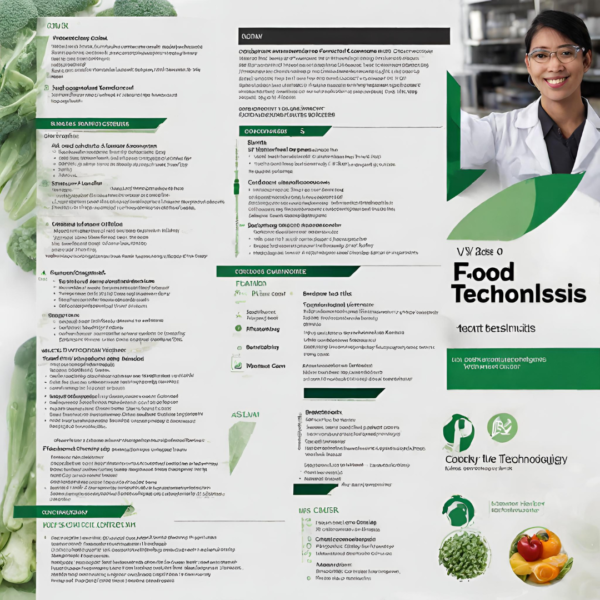Canada is renowned for being one of the top countries in the world to Immigrate. The demand for food technologist is particularly high. Therefore makes an ideal time for Immigrate to Canada. Canada offers excellent employment opportunities to Food Technologist and a thriving Food Industry economy.
The Immigration, Refugees and Citizenship Canada (IRCC) has recently announced plans to invite over one million immigrants to Canada. This emphasises the country’s commitment to welcoming skilled workers. We will explore the various immigration pathways available to food technologists. Also the importance of educational credential assessment, and the advantages of migrating to Canada.
Why Migrate to Canada as a Food Technologist?
Advantages of Canada Immigration
Canada offers numerous benefits for immigrants, making it an attractive destination for professionals in various fields, including food technology. Some of the key advantages of migrating to Canada as a food technologist include:
- Progressive Government: Canada is known for its progressive government, which is highly welcoming of new immigrants and promotes diversity and inclusivity.
- Strong Community: Canada already has a large and supportive community of International immigrants, making the transition easier for newcomers.
- Diverse Job Opportunities: Canada has a diverse and thriving economy, offering a wide range of job opportunities to professionals with experience in food technology.
- Multiple Immigration Pathways: Canada provides various immigration pathways, including the Express Entry program and Provincial Nominee Programs (PNPs), to qualify for permanent residency.
- Free Application: The application process for Canadian immigration is free of cost, allowing individuals to apply without financial constraints.
- Job Offers Not Mandatory: Canada allows skilled workers to immigrate even without a job offer, provided they have relevant experience and their occupation is in high demand.
- Comprehensive Benefits: Permanent residents in Canada enjoy benefits such as free education, healthcare, legal protection, and the opportunity to become a citizen after three years of residency.
Immigration Pathways for Food Technologists
Express Entry Program
The Express Entry program is the primary immigration pathway for professionals looking to settle in Canada as permanent residents. It offers several streams, with the Federal Skilled Worker Program (FSWP) being the most popular among food technologists.
The FSWP operates on a Comprehensive Ranking System (CRS), where applicants rank based on factors such as age, education, work experience, language proficiency, and adaptability. To qualify for the FSWP, a valid job offer is necessary. However, with the high demand for food technologists in Canada, obtaining a job offer should not be challenging.
Provincial Nominee Programs (PNPs)
PNPs are designed to facilitate immigration to specific provinces in Canada. For food technologists, the provinces of Nova Scotia and Saskatchewan have high demand in this field. PNPs also offer multiple pathways to specific provinces, including the Express Entry pathway and the Occupation in-Demand pathway.
- Express Entry Pathway: This pathway operates similarly to the FSWP in the Express Entry system and requires applicants to meet specific criteria set by the province they wish to apply to.
- Occupation in-Demand Pathway: This pathway is specifically for individuals whose occupations are in high demand in a particular province. It allows applicants to move to the province without a job offer, provided their occupation is in high demand.
Choosing the right immigration pathway can be challenging, considering the numerous options available. It is advisable to consult with immigration experts to determine the most suitable pathway for your specific circumstances.
Educational Credential Assessment (ECA)
To evaluate the educational background and credentials of food technologists, an Educational Credential Assessment (ECA) is done. This assessment is crucial for individuals seeking immigration to Canada as it compares their education in food technology or food science with Canadian standards. The Minister of Immigration designates certain agencies, such as the International Credential Assessment Service of Canada (ICAS) and the World Education Services (WES), to provide ECA services.
Importance of Transcript Assessment
Assessment of your food technology credentials is vital for your Canadian migration journey. It verifies your educational qualifications and enhances your employability in Canada. Upon successful evaluation, Authority provides digital badges that serve as secure online displays of your educational credentials. These badges can be showcased on your resume or LinkedIn profile, giving you a competitive advantage in the job market.
National Occupational Classification Code for Food Technologists- 22100
Conclusion
Migrating to Canada as a food technologist offers a wealth of opportunities and benefits. With the country’s welcoming immigration policies, diverse job market, and excellent education systems, Canada provides an ideal environment for professionals in this field.
With the assistance of immigration experts and the right documentation, you can take the necessary steps to migrate to Canada and embark on a rewarding career in the vibrant food technology sector of the country.













